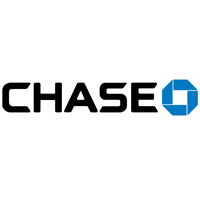Top Class Actions’s website and social media posts use affiliate links. If you make a purchase using such links, we may receive a commission, but it will not result in any additional charges to you. Please review our Affiliate Link Disclosure for more information.
Follow us on Twitter and Facebook for the latest Class Action Settlement News!
Chase Convenience Checks Class Action Lawsuit
By Mike Holter
 Chase Bank has been hit with a class action lawsuit attacking its practice of mailing “ready to go” convenience checks to consumers in order to entice them to open lines of credit. According to the class action lawsuit, the bank refuses to honor the checks, leaving its victims liable for returned check fees, insufficient fund fees, and late fees on mortgage payments.
Chase Bank has been hit with a class action lawsuit attacking its practice of mailing “ready to go” convenience checks to consumers in order to entice them to open lines of credit. According to the class action lawsuit, the bank refuses to honor the checks, leaving its victims liable for returned check fees, insufficient fund fees, and late fees on mortgage payments.
Lead Plaintiff Gerald Maher alleges in the Chase Bank convenience check class action lawsuit that he received a solicitation letter from Chase in April 2009 that included several checks and stated:
“These checks are ready to go. You can write them for any amount up to the unused portion of your credit line. Just make sure you have enough available credit for the transaction(s), interest, and any related fees.”
Maher claims in the class action lawsuit that he called Chase and was told he could use the convenience checks in any amount up to $5,000. Based on this information, Maher wrote a check to himself for $2,500 and cashed the check at his bank. However, Chase refused to honor the check drawn on his account, which caused him to suffer non-sufficient-funds (NSF) fees and late fees, according to the class action lawsuit.
“Chase mailed Plaintiff and other consumers (both in Illinois and nationally) form convenience checks that were represented as being available for use in amounts up to the consumer’s then unused credit line. However, without advanced notice, Chase deceptively and unfairly chose not to honor such checks, thereby proximately causing damage to these consumers” in the form of return check fees, NSF and late fees, the Chase convenience check class action lawsuit states.
Chase is accused of sending these checks to hundreds, if not thousands, of consumers across the U.S., and then lowering the consumers’ available credit limit “below the amount for which the convenience check had been written as a pretext for having dishonored the checks,” the class action lawsuit says.
“Presumably to avoid the cost of Chase paying to pre-check the credit scores of every person to whom they sent convenience checks while simultaneously maximizing their profits by simplifying the perception of ‘convenience’ for the checks, Chase sent the checks without either:
“a. Requiring an additional step for interested consumers — such as an advanced credit check; or
“b. Informing recipients that the checks could not be as ‘conveniently’ used as their receipt implied, but that there was a risk of the check being refused after its use.
“In fact, as demonstrated by the Plaintiff’s advanced call to Chase, when Chase was presented with the opportunity to inform the Plaintiff of the truth, they suppressed the material fact that it was Chase’s procedure not to perform their final credit check of any consumer until after the consumer used the check and the check was in turn presented to Chase for payment.”
The Chase credit check class action lawsuit is brought on behalf of all Chase credit card account holders nationally who received form convenience checks in the mail and who used those checks with third parties for amounts which were “up to the unused portion of the card account holders’ credit line,” and who had the convenience checks returned, denied for process, and/or dishonored. It is seeking actual damages, punitive damages and other relief for common law fraud and deceptive and unfair trade.
A copy of the Chase Convenience Checks Class Action Lawsuit can be read here.
The case is Gerald Maher v. Chase Bank USA, et al., U.S. District Court, Northern District of Illinois, Eastern Division.
Updated April 16th, 2012
All class action and lawsuit news updates are listed in the Lawsuit News section of Top Class Actions
Top Class Actions Legal Statement















2 thoughts onChase Convenience Checks Class Action Lawsuit
I just got a letter from Chase saying that I need to pay $63 + $5 for them to take their name off of a LINE of CREDIT that they encouraged me to take out about 11 years ago. We have not used it for at least 8 years, and they in fact wrote me a letter about 2 years ago saying that due to ??? they were ‘closing’ our LINE of CREDIT.
So now I am supposed to PAY them $68.00?????
Does this fall under the Line of Credit ‘Convenience’ Check lawsuit?
What a RIP OFF!
These checks, that they still send are a huge waste of paper. I get them at least once a month, every month, and eventually one will get stolen out of the mailbox and cashed. Chase gonna pay me back for that one?
They are absolutely INconvenience checks.